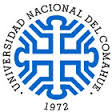- RDI Principal
- →
- Facultad de Derecho y Ciencias Sociales
- →
- Artículos
- →
- Ver ítem
JavaScript is disabled for your browser. Some features of this site may not work without it.
Mostrar el registro sencillo del ítem
| dc.creator | Matus, Ana | |
| dc.date | 2021-12 | |
| dc.date.accessioned | 2023-04-27T12:50:09Z | |
| dc.date.available | 2023-04-27T12:50:09Z | |
| dc.identifier.issn | 2545-6393 | es_ES |
| dc.identifier.uri | http://rdi.uncoma.edu.ar/handle/uncomaid/17118 | |
| dc.description.abstract | El objetivo de este artículo es aproximarnos a modelos analíticos que se inscriben en el llamado “giro afectivo” en el marco de los aportes y desafíos que plantea a la Teoría Social. Abordaremos ciertas distinciones entre la versión crítica en la que se inscriben teóricas como Sara Ahmed y Ann Cvetkovich, con la perspectiva en la que se alinea la socióloga Deborah Gould. Nos centraremos luego en el trabajo de esta última al repasar sus diálogos con la literatura sobre Movimientos Sociales y la reelaboración de la noción bourdesiana de habitus como habitus emocional. En la investigación de Gould (2009) se vislumbran diálogos teóricos que van forjando un espacio conceptual que nos interesa recuperar. Sostenemos que es una de las pocas autoras del “giro afectivo” que formula preguntas centrales para pensar los estudios de campo desde esta perspectiva. A continuación, ensayamos algunos posibles usos operativos de las tramas conceptuales revisadas, y situamos el anclaje empírico en la situación de las personas trans** del Alto Valle de Río Negro y Neuquén, Argentina. | es_ES |
| dc.description.abstract | The aim of this article is to approach analytical models within the “affective turn” within the framework of the contributions and challenges posed by Social Theory. We will address certain distinctions between the critical analysis subscribed by theorists like Sara Ahmed and Ann Cvetkovich, and the framework that sociologist Deborah Gould aligns with. We will then focus on the works of the latter, going over her dialogue with the literature on Social Movements and her transformation of the bourdieusian notion of habitus into emotional habitus. In Gould’s research (2009) there are theoretical dialogues which forge a conceptual space that we wish to bring to the foreground. We claim that she is one of the few authors within the “affective turn” that poses key questions to approach field research from this perspective. Some possible operational uses of the revisited conceptual framework are developed below, and we place the empirical basis on the situation of trans** people of the Alto Valle of Río Negro and Neuquén, Argentina. | es_ES |
| dc.format | application/pdf | es_ES |
| dc.format.extent | pp. 210-235 | es_ES |
| dc.language | spa | es_ES |
| dc.publisher | Universidad Nacional del Comahue. Facultad de Derecho y Ciencias Sociales | es_ES |
| dc.relation.uri | https://revele.uncoma.edu.ar/index.php/revistadelafacultad/article/view/3514 | es_ES |
| dc.rights | Atribución-NoComercial-CompartirIgual 2.5 Argentina | es_ES |
| dc.rights.uri | https://creativecommons.org/licenses/by-nc-sa/2.5/ar/ | es_ES |
| dc.source | (En) clave Comahue. Revista Patagónica de Estudios Sociales. Año 28 Núm. 27 (2021) | es_ES |
| dc.subject | Giro afectivo | es_ES |
| dc.subject | Teoría social | es_ES |
| dc.subject | Identidades trans | es_ES |
| dc.subject | Affective turn | es_ES |
| dc.subject | Social theory | es_ES |
| dc.subject | Trans identities | es_ES |
| dc.subject.other | Ciencias Sociales | es_ES |
| dc.title | Giro afectivo y Teoría Social : el concepto de habitus emocional de Deborah Gould y las comunidades disidentes del Alto Valle de Río Negro y Neuquén | es_ES |
| dc.type | Articulo | es |
| dc.type | article | eu |
| dc.type | acceptedVersion | eu |
| dc.description.fil | Fil: Matus, Ana. Universidad Nacional del Comahue. Facultad de Derecho y Ciencias Sociales; Argentina. | es_ES |
| dc.cole | Artículos | es_ES |
Ficheros en el ítem
| Ficheros | Tamaño | Formato | Ver |
|---|---|---|---|
|
No hay ficheros asociados a este ítem / ver Orígen del documento. |
|||


